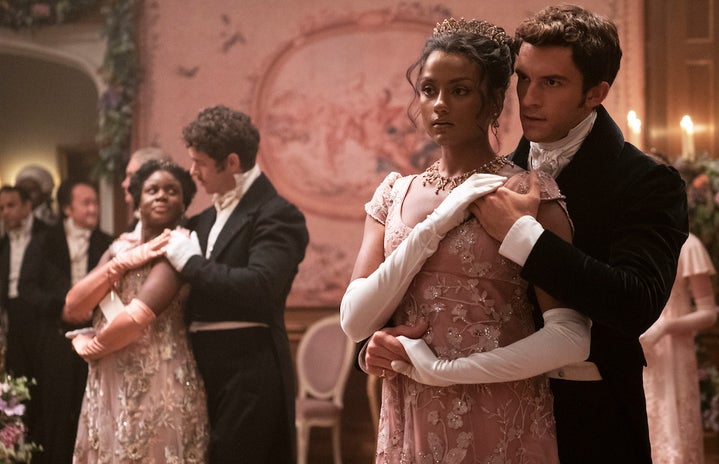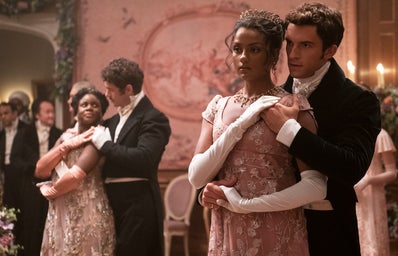During the rare instances an Indian girl is at the forefront of any piece of mainstream media, she’s often seen as the awkward wallflower, whose “glow-up” consists of ditching her glasses, abandoning her culture and rebelling against her family. Bridgerton’s Kate Sharma is the extraordinary exception.
With utmost grace and dignity, the historical drama character portrays Indian culture without making it her only defining characteristic.
A new character in the show’s second season, her first line was a Hindi phrase: “Baap re,” an informal way of saying “Oh my God.” I was taken aback as soon as I heard it and had to rewind to make sure I heard correctly. I knew right then and there that maybe, we had something good on our hands here.
I was right.
From the subtle accent in her voice to her jewelry and attire, influences of Indian culture were made present.
Even the way Kate made tea or was shown to oil her sister’s hair—these subtle nods are sure to leave a lasting impact. It showed an attentive and deliberate consideration of the little habits in South Asian households, something I haven’t really seen much in mainstream media.
There was no mockery or caricatures, only soft and delicate references to Indian culture and customs.
Moreover, Kate, her sister Edwina and their mother were also shown to participate in a haldi ceremony: a South Asian customary ceremony that often takes place a day before a wedding. This scene in particular was extremely special to me; it showcased a significant event without exaggerating it for comedic value.
The Sharmas are written as simply women who are Indian, rather than only women whose defining and only quality was being Indian. While it may not sound like there’s any difference between the two, there definitely is one. While their cultures are a part of their identity, it is not shown to be their whole identity.
The writing behind these characters was incredibly thoughtful and purposeful, and goes to show how simple good representation is and can be – and how effective and everlasting authentic and natural representation can be to so many.


